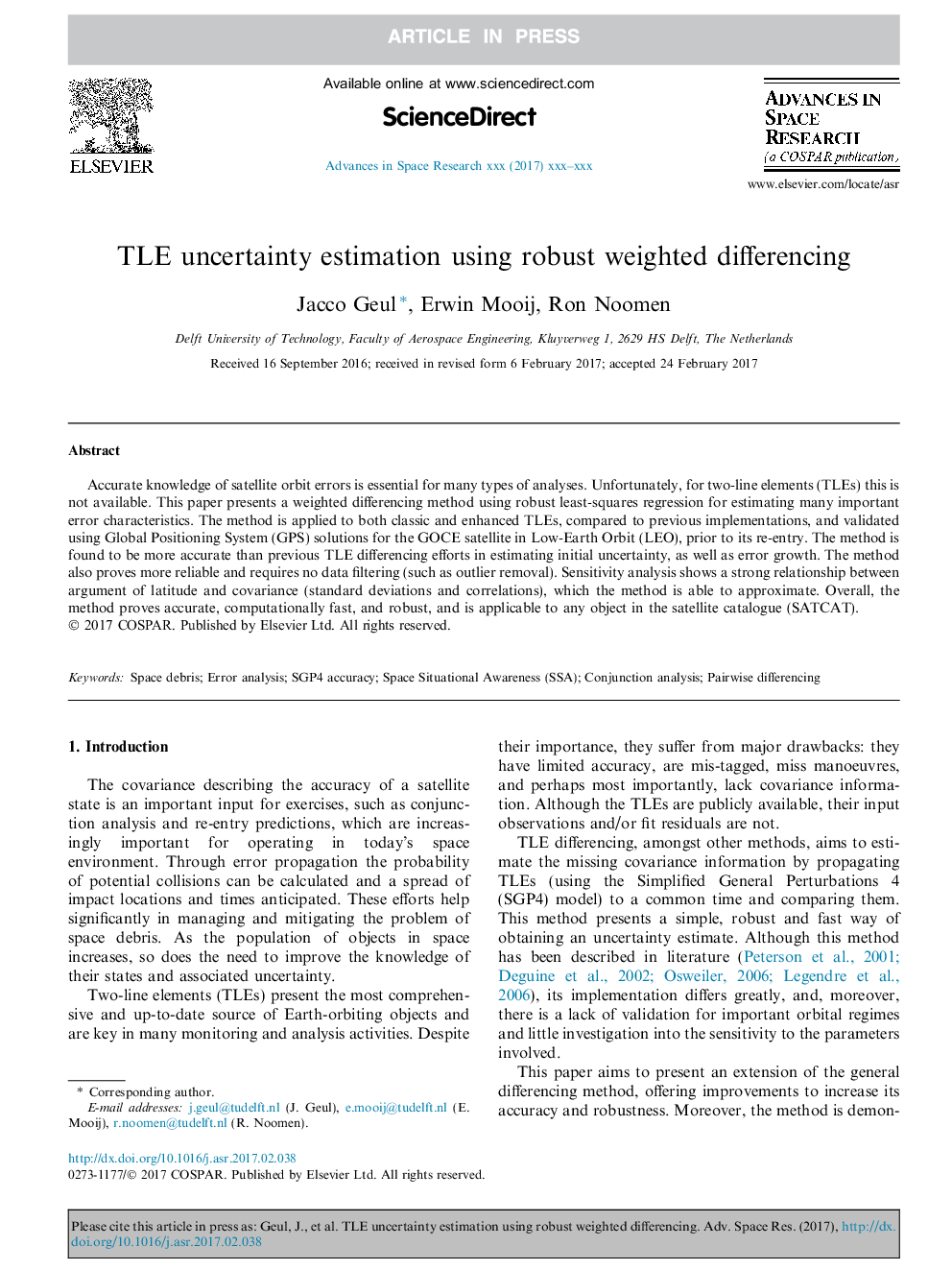| Article ID | Journal | Published Year | Pages | File Type |
|---|---|---|---|---|
| 5486207 | Advances in Space Research | 2017 | 14 Pages |
Abstract
Accurate knowledge of satellite orbit errors is essential for many types of analyses. Unfortunately, for two-line elements (TLEs) this is not available. This paper presents a weighted differencing method using robust least-squares regression for estimating many important error characteristics. The method is applied to both classic and enhanced TLEs, compared to previous implementations, and validated using Global Positioning System (GPS) solutions for the GOCE satellite in Low-Earth Orbit (LEO), prior to its re-entry. The method is found to be more accurate than previous TLE differencing efforts in estimating initial uncertainty, as well as error growth. The method also proves more reliable and requires no data filtering (such as outlier removal). Sensitivity analysis shows a strong relationship between argument of latitude and covariance (standard deviations and correlations), which the method is able to approximate. Overall, the method proves accurate, computationally fast, and robust, and is applicable to any object in the satellite catalogue (SATCAT).
Related Topics
Physical Sciences and Engineering
Earth and Planetary Sciences
Space and Planetary Science
Authors
Jacco Geul, Erwin Mooij, Ron Noomen,
